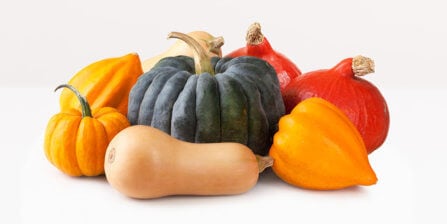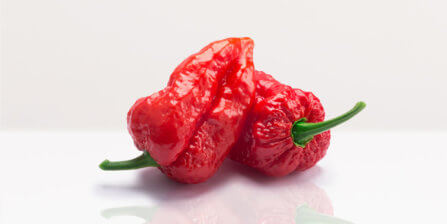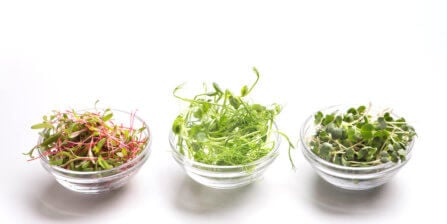Grocery Guides
Coconut Butter – All You Need to Know | Instacart’s Guide to Groceries

What is coconut butter?
Coconut butter is a creamy, spreadable butter made from the flesh of the coconut. It can be used for a variety of recipes. You can spread it on toast, use it as a creamer for coffee, add to smoothies, or even eat it straight off the spoon.
Coconut butter should not be mistaken for coconut oil. Coconut oil is mainly an ingredient in recipes, while coconut butter should not be used for cooking, as it burns quickly at high temperatures.
You can purchase pre-made coconut butter from most grocery stores or even make it home if you like.
Where did coconut butter originate from?
Coconuts have a long and rich history of various applications, from giving sustenance and healing benefits to providing shelter and boat making. They have been used for centuries in South America, Central America, Asia, and Africa. According to historians, the coconut originated from India and Southeast Asia but traveled to other parts of the world by floating on oceans and being brought across by seafaring traders.
About a decade ago, the coconut became popular in the Western world when athletes started drinking coconut water for its natural electrolytes. Since then, the popularity of coconuts and their health benefits have extended to other coconut products like coconut oil, coconut milk, and coconut butter.
What is the nutritional value of coconut butter?
Unlike coconut oil, coconut butter contains nutrients, notably fiber. One serving size (33g) contains about 5g of dietary fiber and 7g of carbohydrates. Other nutrients include potassium, magnesium, iron, and protein.
It should be noted that coconut butter also contains about 10g of saturated fat per tablespoon.
Like coconut oil, coconut butter contains lauric acid, which is a type of saturated fat.
How is coconut butter made?
Coconut butter is made by drying and shredding the coconut after all the water has been extracted from it. The flesh of the coconut, including the oil, is pureed to form coconut butter.
At home, coconut butter can be made by pureeing the meat of the coconut in the blender for about 10 minutes until it becomes smooth, buttery, and creamy.
What is the shelf life of coconut butter?
Coconut butter is naturally stable and lasts for about 1 year to 15 months depending on the brand and if it contains preservatives or not.
However, the consistency of coconut butter will vary according to the temperature while in storage. It is soft and creamy when warm but hard and flaky when stored in a cool place or during the cooler months.
What should I look for when buying coconut butter?
Look for coconut butter in the natural food or whole food section of the grocery store. You may also find it in a dedicated area for nut butters, or it may be stocked with coconut oil.
When buying coconut butter, look for coconut butter that has minimal processing for the best quality.
You may notice some oil separation in the containers, but that is quite normal for coconut butter as it contains nearly 60% of oil. You may also notice some white flakes or spots in the jar. This is also normal if it is not past the expiry date. All you need to do is warm the jar when you open it and stir the coconut butter.
But it’s important not to heat it on the stove, as it burns easily and needs only a low temperature to melt.
If you are looking to have your groceries delivered, you can easily shop for coconut butter via Instacart. After adding a product to your cart, use the “Instructions” option to notify your Instacart shopper about any preferences or specific directions on how to choose the best products. Shop for coconut butter.
How to store coconut butter
In the warmer months, store coconut butter in the pantry. It does not have to be refrigerated as it will get too cold and not be spreadable. In the cooler months, store coconut butter in a warm place in the kitchen but away from sunlight so that it is creamy and spreadable.
While in storage, you may notice some oil separation. Simply warm the coconut butter and stir with a knife to blend.
Store homemade coconut butter in a sealed glass jar or container in the pantry. This should last a few months.
How to tell if coconut butter is bad
Although coconut butter can last for a while, you will know it has gone bad when the oil smells or taste rancid.
What can I substitute for coconut butter?
If you don’t have any coconut butter at hand for your recipes, easily substitute with healthy alternatives from the produce or pantry section. Here are some substitutes for coconut butter:
- Vegan butter
- Nut butter (peanut, almond, or hazelnut)
- Apple sauce
- Mashed bananas
- Avocados
- Greek yogurt
Buy coconut butter today
Coconut butter is great for many things. With its natural sweetness, you can use it to make vegan sweet treats or even add it to create rich sauces for chicken, fish, tofu, or stir-fry. It tastes great in curries or drizzled over yogurt or ice cream.
Besides food, you can even use it for hair and skin care.
It seems like a great product to have in your pantry, so why not buy coconut butter today.
Most Recent in Grocery Guides

Grocery Guides
Guide to Sustainable Grocery Delivery
Who has time for the grocery store these days? Between work, family and everything else, it feels like a chore we could all do without. That's where sustainable grocery delivery comes in! You get the…
Feb 7, 2025
Grocery Guides
19 Best Milk Substitutes for Baking and Cooking
Milk’s rich texture and neutral flavor make it a staple in countless recipes, bringing creaminess and balance to sweet and savory dishes alike. But what happens if you run out of milk or need a…
Jan 30, 2025
Grocery Guides
15 Best Cheeses for Your Next Charcuterie Board
Let’s face it: The heyday of the store-bought party platter is long gone. Now, the duties of a good host often include curating an impressive charcuterie board. But where do you begin? Charcuterie boards typically…
Jan 21, 2025

 Squash – All You Need to Know | Instacart Guide to Fresh Produce
Squash – All You Need to Know | Instacart Guide to Fresh Produce  Ghost Pepper – All You Need to Know | Instacart Guide to Fresh Produce
Ghost Pepper – All You Need to Know | Instacart Guide to Fresh Produce  Sprouts – All You Need to Know | Instacart Guide to Fresh Produce
Sprouts – All You Need to Know | Instacart Guide to Fresh Produce 

